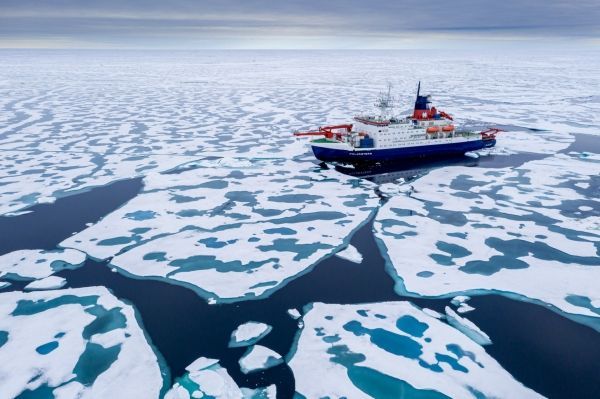The expedition is now entering its final stage, during which researchers will study the last piece of the Arctic puzzle: the growth of new sea ice marking the end of the summer season.
In September 2019, the German research icebreaker Polarstern set sail from Tromsø, Norway, to spend a year drifting through the Arctic Ocean – trapped in ice. After leaving the ice floe it had been sitting in for the previous ten months, the icebreaker travelled through the Fram Strait and along the northeast coast of Greenland – a region that is usually home to thick, multi-year ice.
Using radar satellite imagery and sea-ice data, researchers onboard the vessel determined that the ice conditions this year were ‘lighter than usual’ and were able to complete their journey to the North Pole in just six days.
Continue reading at European Space Agency
Image via European Space Agency


